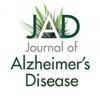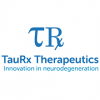20 January 2020
Human Exposure to Aluminum Linked to Familial Alzheimer’s Disease
A new study published in the Journal of Alzheimer's Disease (JAD) supports a growing body of research that links human exposure to aluminum with Alzheimer's disease (AD). Researchers found significant amounts of aluminum content in brain tissue from donors with familial AD. The study also found a high degree of co-location with the amyloid-beta protein, which leads to early onset of the disease.
22 December 2019
Is There a Link Between Lifetime Lead Exposure and Dementia?
To the medical community’s surprise, several studies from the US, Canada, and Europe suggest a promising downward trend in the incidence and prevalence of dementia. Important risk factors for dementia, such as mid-life obesity and mid-life diabetes, have been increasing rapidly, so the decline in dementia incidence is particularly perplexing.
27 November 2019
New Study Shows a Minimum Dose of Hydromethylthionine Could Slow Cognitive Decline and Brain Atrophy in Mild-to-Moderate Alzheimer's Disease
TauRx has reported unexpected results of a pharmacokinetic analysis of the relationship between treatment dose, blood levels and pharmacological activity of the drug hydromethylthionine on the brain in over 1,000 patients with mild-to-moderate Alzheimer’s disease. These results showed that the drug produced concentration-dependent effects on cognitive decline and brain atrophy.
26 November 2019
Psychological Well-Being at 52 Years Could Impact on Cognitive Functioning at 69 Years
Miharu Nakanishi, Chief Researcher of Tokyo Metropolitan Institute of Medical Science, and her colleagues finds that psychological well-being at 52 years were prospectively associated with cognitive function at 69 years. The authors used data in women from the British 1946 birth cohort in the Medical Research Council’s National Survey of Health and Development. There was a significant association between greater personal growth and lower self-acceptance at 52 years, and better cognition at 69 years.
20 November 2019
Oligomerix and Feinstein Institutes Publish In Vivo Alzheimer’s Disease Treatment Data
Oligomerix, Inc. and the Feinstein Institutes for Medical Research announced today the publication of preclinical data demonstrating that an oral small molecule drug inhibits the formation of neurotoxic tau oligomers in an animal model of tau aggregation most relevant to AD. The study showed that the compound blocked tau self-association, which is the earliest step in the toxic tau aggregation cascade, and inhibited the downstream events that lead to tau fibril formation.
14 November 2019
Getting to the "Art" of Dementia: UC Researchers Highlight Benefits of Art Intervention
University of Canberra researchers have shown that art gallery programs can improve the wellbeing of people living with dementia – and they’ve backed it up by testing study participants’ saliva. Published in the Journal of Alzheimer’s Disease, the UC study monitored new participants of the National Gallery of Australia’s (NGA) Art and Dementia program over six weeks. The NGA program has been running for more than 12 years and has demonstrated anecdotal and observational benefits, now backed up by UC research.
31 October 2019
In Blacks with Alzheimer's Gene, Higher Education May Be Protective
A new study from Columbia University found that a higher level of education protected against cognitive decline in black people with a gene linked to Alzheimer's disease.
28 October 2019
Looking at the Way We Walk Can Help Predict Cognitive Decline
The way people walk is an indicator of how much their brains, as well as their bodies, are aging. Scientists reporting in a JAD special supplement say that gait disorders, particularly slowing gait, should be considered a marker of future cognitive decline. They propose testing motor performance as well as cognitive performance in older adults with mild cognitive impairments.
23 October 2019
Study Identifies Brain Injury as a Cause of Dementia in Some Older Adults
A UCLA-led study finds that, with the use of magnetic resonance imaging (MRI) scans, it is possible to distinguish between memory loss caused by Alzheimer’s disease and traumatic brain injury. Researchers from UCLA, along with colleagues at Washington University in St. Louis, say the finding is important because it could help prevent a misdiagnosis of Alzheimer’s disease, which can be devastating for patients and their families. One study found that as many as 21 percent of older adults with dementia may be misdiagnosed with Alzheimer’s disease. A misdiagnosis can result in patients not receiving the appropriate treatment, and prevents them from participating in clinical trials that could improve their overall care.
21 October 2019
Two of a Kind: Emory Study of Twins Shows What’s Good for the Heart is Good for the Brain
Emory University researchers are giving us double the reasons to pay attention to our cardiovascular health – showing in a recently published study in the Journal of Alzheimer’s Disease that good heart health can equal good brain health. By studying pairs of twin brothers from the Vietnam Era Twin (VET) registry, researchers were able to observe the relationship between cardiovascular health and cognitive performance across all participants that may be explained by genetics and/or exposures or behaviors that are shared by members of the same family.
















